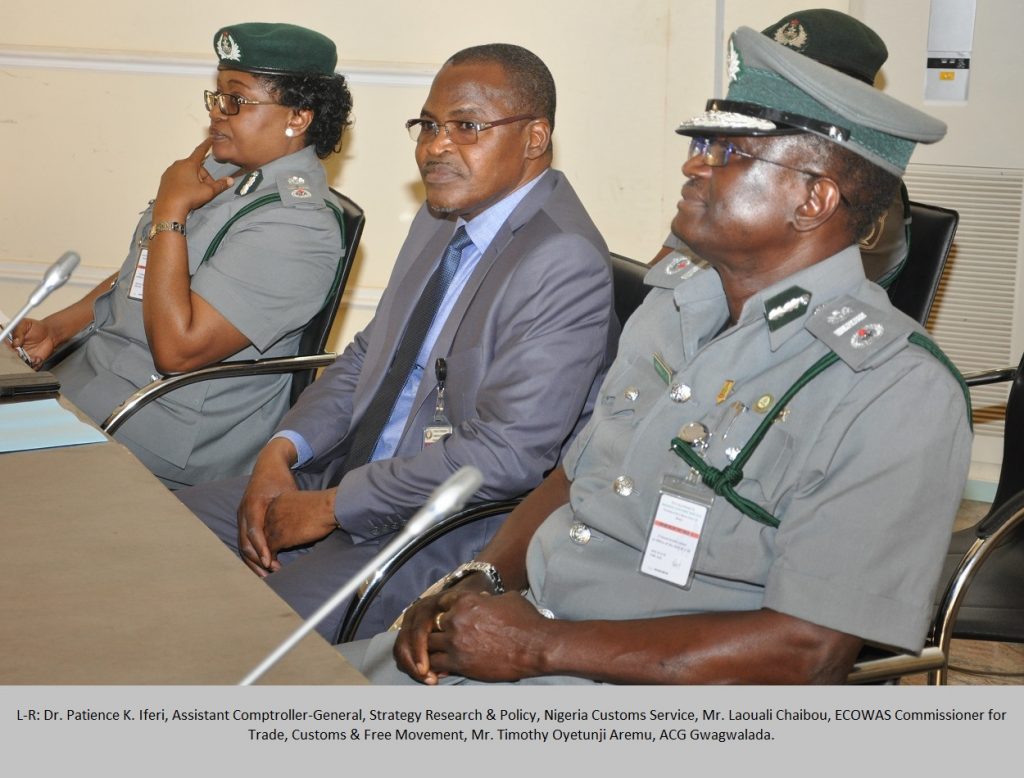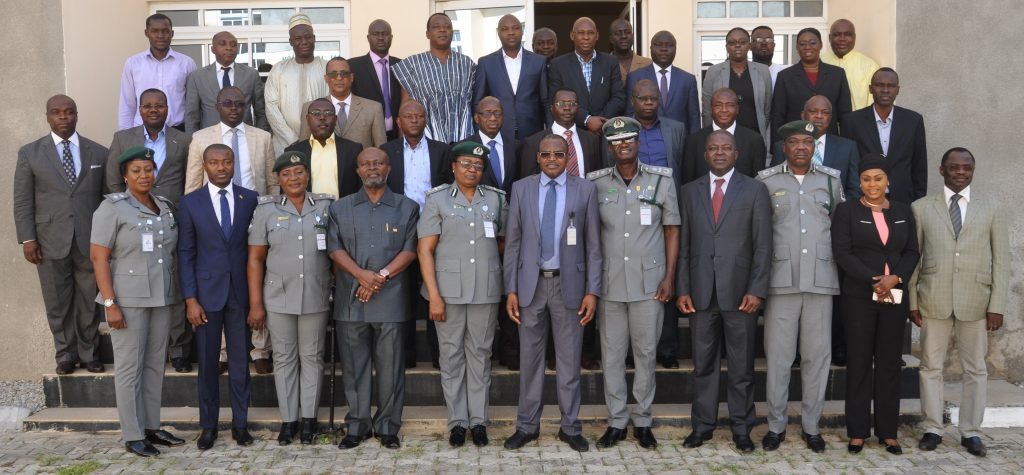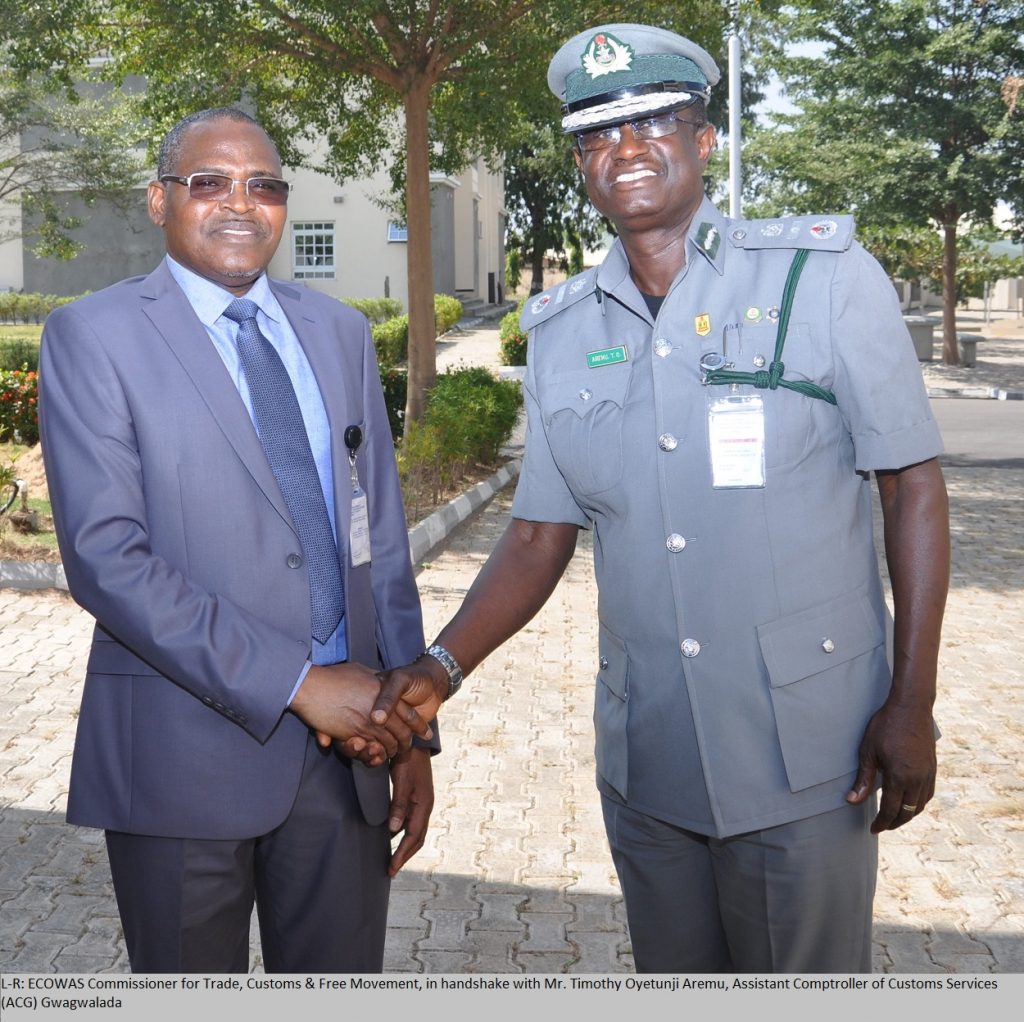|
Abuja 29th November 2016
Following the liberalization of intra-Community trade and the implementation of an ECOWAS common external tariff, Customs Officials from ECOWAS Member States are reviewing the draft Community Customs code.
The Code contains the general rules and procedures for the application of tariff and other common policy measures introduced at Community level in the context of trade in goods between the customs territory of the 15- Member States of the ECOWAS and third countries in accordance with the requirements of these common policies.
To this end, a three-Day regional validation meeting at the Nigeria Customs Command and Staff College, Gwagwalada, began on the 28th of November 2016 to accelerate and simplify customs procedures in the region, among others.
Welcoming delegates to the workshop, the ECOWAS Commissionner for Trade, Customs & Free Movement Mr. Laouali Chaibou described the review and validation meeting as another positive step in the building of a customs union in accordance with the objectives of the Treaty establishing the ECOWAS.
According to the Commissioner, since the Community is based on a customs union at this stage, and in accordance with the principles of attribution and subsidiarity, it is in the interest of both the economic operators of the region and the Customs Administrations to collect customs legislation in a code.
According to him, the draft also lays down “extensive harmonization, which is conceived as a means of contributing to the realization of the customs union, within which the Customs administrations of the Member States are required to apply at the external borders, the Common External Tariff (CET) and the other provisions Regulatory framework for trade in a consistent and coherent manner”
Commissioner Chaibou noted further that the presence of terrorist acts and illicit trafficking undermine the security of populations and the economic development of States while the reduction of barriers to trade and the increased need to ensure security and safety at the external borders of the Community have transformed the traditional missions of Customs Administrations by making them play a central role in the international logistics chain and Conferring, (in the monitoring and management of international trade), in them a mission of catalyzing the competitiveness of States and enterprises.
The use of information and communication technologies he stressed, should be accompanied by a harmonized and standardized application of customs controls by all Member States in order to ensure an equivalent level of customs control throughout the Community.
In her address, the Assistant Comptroller General of the Nigeria Customs Service Dr. Patience Iferi harped on the need for a harmonized customs operations in the region stressing that Trade Facilitation had become an issue to be talked about in years to come while the adoption of the Trade Facilitation Agreement (TFA) in Bali, Indonesia in 2012 has changed the dynamics of management of international trade.
For the ECOWAS region, she maintained that there is a high need for coordination and direction of operations of controlling and to accelerate the growth of regional trade while custom administrations need to come together to critically look at their roles in the security and facilitation of trade.
It was a general submission that as part of the process of building the common market, it is necessary to complement the existing legal instrument with a Community Customs Code that will contain the general rules and procedures for the implementation of common tariff and other policy measures established at the community level to guide trade in goods between ECOWAS and third countries, taking into account the requirements of these policies.
The draft code being reviewed is based on international instruments, the Customs Code of the European Union as well as best practices derived from various similar national and community regulations.
|






